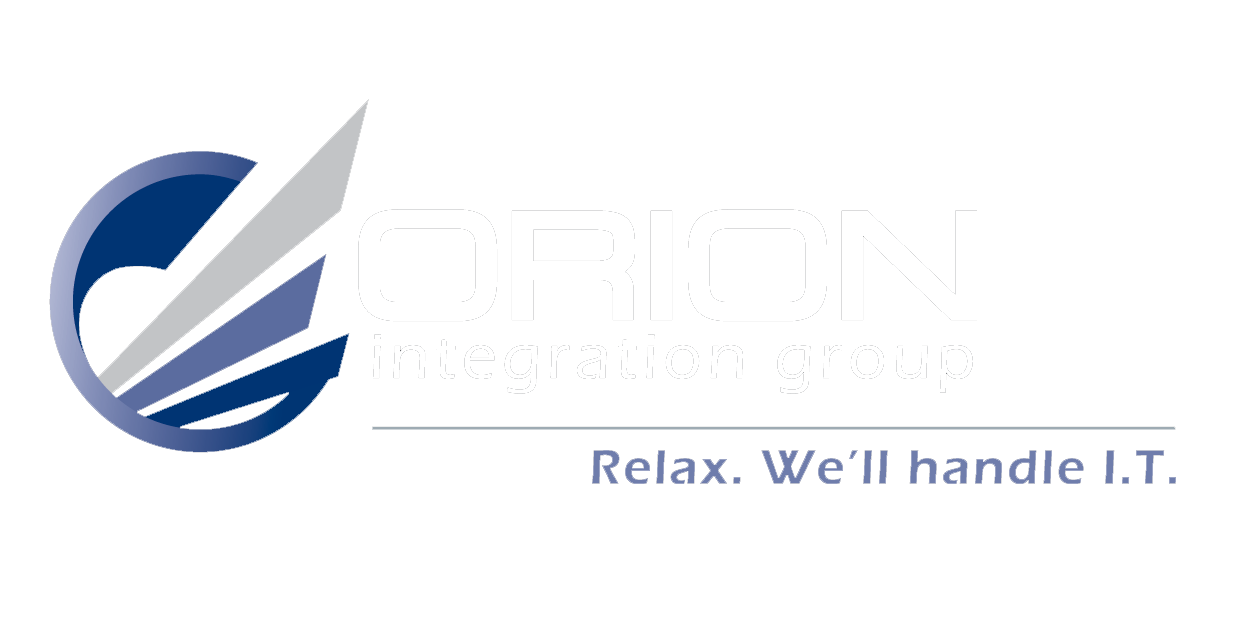Choosing the Perfect Cloud Provider for Your Business's Future Growth
Selecting the right cloud provider is crucial for a business aiming to grow. Companies need to understand their options to ensure they choose a service that supports their future needs. The right provider can offer scalability, security, and reliability, helping businesses operate smoothly and efficiently. By making an informed choice, businesses can set a strong foundation for long-term success and growth in a competitive market.
The Importance of Selecting the Right Cloud Provider
In the digital age, cloud computing has become an integral part of how businesses operate. Its pivotal role in driving operational efficiency, scalability, and competitiveness cannot be understated. For small to medium-sized enterprises, particularly those in regions served by Orion Integration Group, selecting the right cloud service provider is not just a matter of technical necessity but a strategic business decision.
Cloud computing
enables businesses to access and manage data, applications, and services over the Internet, eliminating the need for extensive physical infrastructure. This technology promotes efficiency by allowing employees to work remotely and access vital resources without geographical constraints. Cloud services offer unparalleled scalability, providing the agility to scale resources up or down based on demand. This level of flexibility is vital for businesses aiming to stay competitive in fast-moving industries.
Scalability aside, choosing a cloud provider also impacts a business's competitiveness. In an era where digital presence equates to market presence, the ability to rapidly deploy and manage IT resources can make or break a business's ability to respond to market opportunities and challenges. This responsiveness can be significantly enhanced by a cloud provider that not only understands your business's unique needs but is also committed to delivering personalized IT solutions.
Orion Integration Group emphasizes the importance of aligning cloud services with business values and objectives. We understand that each business is unique, with distinct IT needs and goals. Beyond the technical aspects of reliability, performance, and security, we believe that the right cloud provider should offer solutions that are tailored to enhance your business operations specifically. This approach ensures that the benefits of cloud computing are fully leveraged to improve your business's operational efficiency, scalability, and market competitiveness.
The choice of a cloud provider is a critical business decision that extends beyond basic service offerings. It involves finding a partner who can provide tailored IT solutions that align with your specific business values and needs. With technology playing a central role in today's business operations, selecting the right cloud provider is crucial for ensuring operational efficiency, scalability, and sustained competitiveness.
Evaluation Criteria for Choosing a Cloud Service Provider
Selecting a cloud provider requires a multi-faceted approach to ensure that the chosen service aligns with your business objectives. Key evaluation criteria include reliability, security, customization, support, cost-effectiveness, and sustainability practices. These factors are essential in finding a provider that can grow your business and support your needs long-term.
Reliability and Uptime Guarantees
Consistent service availability is paramount for businesses relying on cloud services. A provider's ability to guarantee high uptime percentages directly impacts your operations and customer satisfaction. Look for SLAs (Service Level Agreements) that promise over 99% uptime, backed by compensatory measures for any downtime experienced. This reliability ensures your business remains operational and competitive, regardless of external pressures.
Security Measures
The increasing sophistication of cyber threats necessitates robust security measures. A credible cloud provider should offer advanced data protection, adhere to strict privacy policies, and comply with industry standards like GDPR for European customers, or HIPAA for healthcare data in the United States. Assessing a provider's encryption practices, vulnerability management, and incident response capabilities is crucial to safeguard your data.
Customizable Offerings and Scalability
Flexibility in services allows for easy adaptation to business growth and changing needs. Providers that offer customizable service packages can more accurately meet your specific requirements, whether you're expanding storage, scaling computing power, or integrating new applications. Scalability ensures that your cloud infrastructure evolves alongside your business.
Customer Support and Expertise
Quality of support is often a determining factor in the provider selection process. A provider’s assistance must go beyond troubleshooting; it should encompass expert guidance for optimizing your cloud environment. Look for providers with a reputation for accessible, knowledgeable support personnel who understand your business context.
Value for Money
While cost-effectiveness is important, the cheapest option is not always the best. Evaluate the balance between cost and the features or benefits offered. Understand how each provider's pricing model fits with your usage patterns and whether it can deliver a favorable long-term ROI for your specific needs.
Sustainability Practices
Aligning with a provider that prioritizes environmental sustainability can reinforce your company’s commitment to reducing its carbon footprint. Many providers now highlight their use of green energy sources and other eco-friendly practices, aligning with the values of environmentally conscious businesses.
Matching Provider Strengths to Business Needs
Finding a match involves thorough assessments and aligning your business priorities with the provider's strengths. Case studies of successful cloud deployments within your industry can offer insights into potential alignments. When negotiating service agreements, assert your priorities to ensure the cloud solutions genuinely fit your operational requirements. This thorough vetting process ensures the chosen provider can support your business’s strategic goals, turning IT investments into effective engines for growth and innovation.
Future-Proofing Your Business with the Right Cloud Provider
As businesses continue to navigate the ever-evolving technological landscape, the importance of selecting a cloud service provider that not only meets current needs but can also accommodate future growth and trends becomes imperative. Future-proofing your business involves understanding both the potential technological advancements on the horizon and how a cloud provider facilitates adaptation and innovation to keep you ahead in your industry.
The right cloud provider acts as a partner in your business's growth, offering not just services, but also guidance and support as you navigate future technological challenges. They ensure that your cloud infrastructure is robust enough to handle new software, platforms, and integrations. This adaptability is crucial for staying competitive and leveraging the latest technologies to your advantage.
Navigating the Cloud Services Market
The cloud services market is vast and varied, with options that cater to almost every conceivable need. This abundance of choice can make the selection process seem daunting. Industry reports from reputable analysts like Gartner and Forrester offer valuable insights into market trends and provider rankings, helping businesses identify providers that are at the forefront of innovation and service quality. Engaging in consultations with IT experts and leveraging online resources can further demystify the selection process, guiding businesses toward making informed decisions that align with their long-term strategies.
As we look to the future, experts predict an increased reliance on cloud services across all sectors, emphasizing the need for businesses to choose providers that are committed to continuous improvement and the adoption of emerging technologies. Features such as artificial intelligence, machine learning, and blockchain are becoming increasingly commonplace within cloud offerings, paving the way for new opportunities in automation, data analytics, and security.
Navigating the multitude of available cloud services requires more than just understanding current offerings. It involves a thorough assessment of how a provider's roadmap aligns with your business's anticipated growth and evolving needs. By prioritizing providers that offer flexibility, scalability, and a commitment to innovation, businesses can ensure that their cloud infrastructure will support them now and in the future.
The journey to selecting the right cloud service provider is multi-faceted, involving considerations of reliability, security, scalability, support, cost, and sustainability. By matching provider strengths to business needs and ensuring that the provider can accommodate future technological shifts, businesses can set themselves up for sustained success. The process is complex, but the rewards—a robust, scalable, and future-proof cloud infrastructure—are well worth the effort. With the right cloud partner, businesses can not only meet their current operational needs but also embrace new technologies and trends that will drive their future growth and innovation.
Ready to embark on your cloud journey with a partner that prioritizes your business's unique needs and future growth? Contact Orion Integration Group today and discover how they can craft a personalized cloud solution that aligns perfectly with your business values and objectives.




